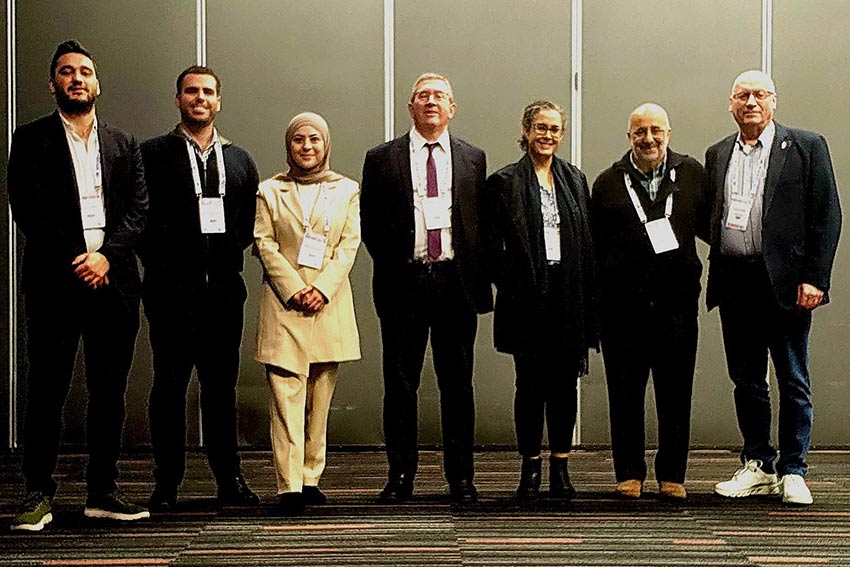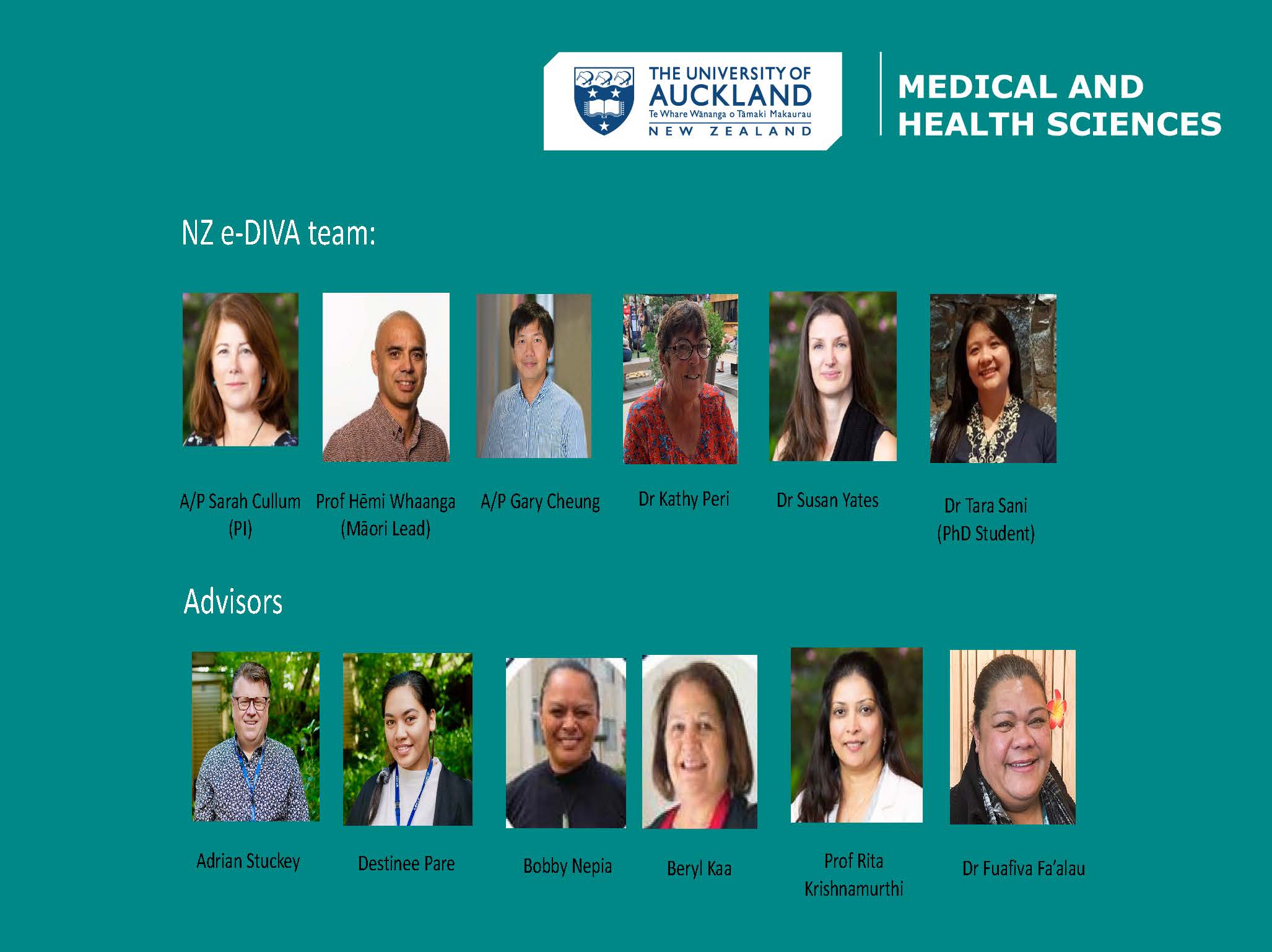Collaborations and partnerships
NISAN has the potential to generate new research and new academic expertise. Development and/or expansion of collaborations will be enhanced through ongoing and new planned joint research projects.
National collaborations
We have already formed excellent relationships with the University of Auckland (Clinical Trials Research Unit, Department of Psychology, School of Population Health, Department of Medicine [Neurology] and Motor Control Laboratory), the Medical Research Institute of New Zealand, the Universities of Waikato and Otago, and the New Zealand Rehabilitation Association.
Effective working relationships have also been established with:
- Te Whatu Ora – Health New Zealand (Waitematā, Waikato, Auckland and Counties Manukau)
- All major hospitals and rehabilitation centres in Auckland and Hamilton including Middlemore, North Shore Hospital and Auckland Hospitals
- Rehab+ and ABI Rehabilitation Management Ltd (CAVIT Rehabilitation)
- Stroke Foundation of New Zealand
- Brain Injury Association of New Zealand
- Midlands Trauma Registry
- Autism New Zealand
- Safekids Aotearoa
- THINK Head Injury Society New Zealand
- Stroke Central Region
- Accident Compensation Corporation
NISAN also shares a close synergy with AUT University's Health and Rehabilitation Research Institute, the Centre for Person Centred Research, and the Knowledge Engineering and Discovery Research Institute (KEDRI).
A selection of national collaborations, including current and completed research projects, is summarised below.
e-DiVA study : empower Dementia Carers with an i Support Virtual Assistant
Rita Krishnamurthi is an advisor on the New Zealand e-DIVA team, along with researchers from the University of Auckland.
The vast majority of people with dementia living in the community (91%) are cared for by their unpaid family carers. The provision of unpaid care often causes pronounced stress, resulting in mental and physical health deterioration, and loss of productivity and income. The e-DiVA study aims to empower*
*Dementia Carers with an i Support Virtual Assistant tool and evaluate the tool through a randomised controlled trial.
Measuring the incidence and outcomes of stroke and TIA in New Zealand
An HRC-funded epidemiological study of the determinants of stroke impact on individuals, families and communities carried out in Auckland.
- AUT University
- The University of Auckland
- University of Otago
- The George Institute for International Health, Sydney, Australia
- Monash University, Australia
- University of Melbourne, Australia
- University of Oxford, UK
- Auckland Hospital
- North Shore Hospital, Waitemata District Health Board, Auckland District Health Board
A pilot study of telehealth intervention (Teen online problem solving - New Zealand)
This study evaluated an innovative internet-based problem-solving treatment programme developed specifically for adolescents after a head injury, and their families (Teen Online Problem Solving Intervention: TOPS). Other researchs were from:
- University of Auckland
- Cincinnati Children's Hospital (USA)
- ABI Rehabilitation
- Geneva Health
International collaborations
Effective working relationships have been established or are in the process of being established with a number of internationally recognised centres of excellence from Australia, UK and the United States.
Neuroepidemiology group of the World Federation of Neurology
Valery Feigin is a member of the Neuroepidemiology group of the World Federation of Neurology. The group is pictured here, at the World Congress of Neurology, Montreal, Canada, October 2023.

Global burden of disease study
Since 2009 Valery Feigin has been a member of the Global Burden of Disease (GBD) study, as the Chairman of the Stroke, TBI Experts Panel and the whole Neurology Section, coordinating work of over 600 members of the expert panels across the globe. The GBD study is based in Washington, USA, and is the largest and most comprehensive study to measure the burden of 315 diseases and injuries worldwide (195 countries). Two other members of NISAN are also members of the Stroke Expert Panel of the GBD study.
Collaborative European Neurotrauma effectiveness research in TBI
This programme of research funded by the EU Commission involves a collaboration of researchers across 19 countries with expertise in brain injury. The collaboration aims to improve characterisation and classification of TBI, and to improve health care delivery and treatment by identifying the most effective clinical interventions to inform treatment recommendations and guidelines. This is the largest TBI epidemiological project in the world. Valery Feigin, Alice Theadom and Kelly Jones are named investigators on this collaboration representing New Zealand.
Reducing the international burden of stroke using mobile technology (RIBURST)
A smartphone information technology platform app has been developed to allow users to calculate their 5 and 10-year stroke risk based on evidence- based stroke risk factors. Armed with this information, an individual can take action, with the help of their doctor, to reduce their risk of having a stroke or a heart attack. The app is being translated into 20 languages. Based on the information collected, the app is constantly being refined and the Stroke Riskometer algorithm will be extended in terms of its accuracy and applicability to different populations, and to develop new, evidence-based apps for the prediction/prevention and management of major non-communicable diseases in the world. The study currently has more than 300 collaborators from 104 countries.
New-Zealand-China strategic research alliance
Methods of computational intelligence and software-hardware systems for personalised mental health risk analysis, outcome prognosis and rehabilitation
This is a joint research collaboration project, under the umbrella of the New Zealand Ministry of Research, Science and Technology, between The Knowledge Engineering & Discovery Research Institute (KEDRI) http://www.kedri.aut.ac.nz, NISAN and the Chinese Academy of Sciences (CAS), China.
The aim is to develop jointly novel computational intelligence methods, software and hardware systems and product prototypes for stroke, brain and spinal cord injuries risk analysis, outcome prognosis and rehabilitation. The project will have three research objectives:
- Objective 1: Develop personalised modelling method and system for stroke data analysis in respect to risk evaluation and outcome prognosis.
- Objective 2: Develop a personalised software-hardware method and hardware system for neuro-rehabilitation.
- Objective 3: Developing and clinical testing robotic rehabilitation devices to improve outcomes in stroke, brain, and spinal cord injury patients.
Collaborate with us
Partnership and collaboration with other organisations and research groups, both nationally and internationally, is central to the success of NISAN.
If you, as an organisation, are interested in establishing a partnership or collaboration with NISAN, please contact us.
Research and study
If you have an interest in a topic that is pertinent either to prevention, treatment, rehabilitation and public health or to the individual impact/burden (including incidence and prevalence studies) of some major neurological disorders (e.g., stroke, dementia, multiple sclerosis, traumatic brain injury), the opportunity to undertake collaborative research with staff from NISAN may be an option.
Collaborative work may even form the basis of a research degree.
